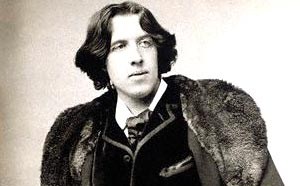28 June 2018
The Happy Prince
A film by Rupert Everett
Reviewed by William Morton
Stars: ****
This film is very much the pet project of Rupert Everett who wrote the script as well as directing it. It is about the final three years of Oscar Wilde’s life, after he had served his sentence for gross indecency but with some flashbacks. Upon being released from gaol, he immediately left for France and never returned to England. He then got back together with his old boyfriend, Lord Alfred Douglas or ‘Bosie’, who had to a large extent been the cause of his downfall. They lived together near Naples for a time but parted because of a shortage of funds (Bosie’s mother and Wilde’s wife were not prepared to continue the allowances they had been paying if they resumed their relationship). Wilde went to Paris where he died in 1900 of meningitis. He was financially strapped, unable to write and understandably a deeply troubled man during this period, and even thought of trying to go back to his wife.
The title of the film comes from a charming children’s story written by Wilde in which a statue of a prince helps the distressed of the city which it overlooks by giving them (with the aid of a swallow) the jewels and gold leaf with which it is decorated. The swallow dies because it has not migrated and the unornamented statue is removed from its pedestal and melted down except for its heart which will not melt. Wilde is shown in the film telling the story to his own children prior to his disgrace and then to some Parisian street children, and the allusion to his own case is clear. Once a leading light in London society, he has been pulled down from his pedestal, stripped of everything and reduced to a broken outcast but his writings live on. The indignities he suffered are shown in scenes where he is spat at by a crowd at Clapham Station while being transferred between prisons and pursued by young English hearties through the streets of a French town. The terrible situation of Wilde’s wife and children and the fickle nature of Bosie are also brought out.
It is a sad film but a professional and engrossing one. Everett is excellent as Wilde, and Edwin Thomas as his steadfast supporter Robbie Ross, and Colin Morgan as Bosie, are also very good. Colin Firth’s part as Wilde’s friend Reggie Harrington does not give him much to get his teeth into. It is not, however, perhaps a film with obvious popular appeal, given its subject matter. This certainly seems to be the view of my local cinema complex which was only offering limited showings on its smallest screen in contrast to its enthusiastic promotion of Ocean’s 8, by all accounts a rather mediocre heist movie.


